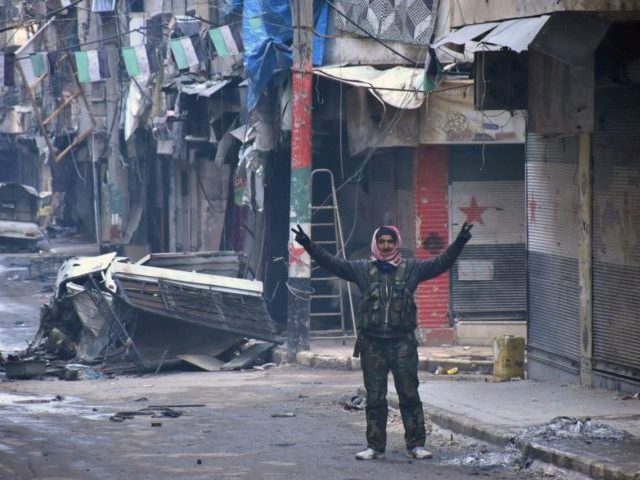(AFP) Syria rebels began peace talks with the war-torn country’s government Monday in Kazakhstan’s capital Astana, but refused to negotiate face-to-face in the first session.
The talks had been billed as the first time armed rebel groups were due to negotiate with President Bashar al-Assad’s regime since the conflict erupted in 2011 and come a month after Syrian forces delivered the rebels a crushing blow by retaking full control of Aleppo.
But rebel spokesman Yehya al-Aridi told AFP the opposition backed out of the first round of direct talks because of the regime’s continued bombardment and attacks on a flashpoint area near Damascus.
“The first negotiation session will not be face-to-face because the government hasn’t committed until now to what it signed in the December 30 agreement,” Aridi said, referring to the fragile ceasefire deal brokered by Turkey and Russia.
Although the rebels and regime sat at the same table for the opening of the talks, it remained unclear whether the two sides would negotiate directly later.
The talks also coincide with a rapprochement between regime ally Russia and rebel backer Turkey, who brokered the current truce after months of US disengagement in the conflict.
Several rounds of failed talks in Geneva saw political opposition figures take the lead in negotiating with the regime.
But in Astana, the 14-member opposition delegation is composed solely of rebels leading the armed uprising, with members of the political opposition serving as advisors.
The negotiations have been widely welcomed, but the two sides arrived in Astana with apparently divergent ideas on their aim.
Chief rebel negotiator Mohammad Alloush said in his opening statement that the opposition was focused on bolstering the nationwide truce, but Assad has insisted rebels lay down their arms in exchange for an amnesty deal.
“We came here to reinforce the ceasefire as the first phase of this process,” Alloush said in comments broadcast online. “We will not proceed to the next phases until this actually happens on the ground.”
Damascus has also called for a “comprehensive” political solution to a conflict that has killed more than 310,000 and displaced more than half of Syria’s population.
The head of the regime delegation, Syria’s UN ambassador Bashar al-Jaafari, said in his opening comments carried by the country’s SANA state news agency that he hoped the talks “will reinforce the cessation of hostilities”.
He added the government was keen to separate the rebels from the Islamic State group and former Al-Qaeda affiliate Fateh al-Sham Front.
– More than ceasefire –
“This is not a replacement for the Geneva process,” rebel negotiator Fares Buyush told AFP, referring to the UN-hosted political negotiations set to resume in the Swiss city next month.
Delegation spokesman Osama Abu Zeid said the rebels were concerned with “more than just a ceasefire”.
“The issue is putting monitoring, investigation, and accountability mechanisms in place,” he told AFP. “We want these mechanisms so that this doesn’t play out over and over.”
Previous pushes for a long-term ceasefire have faltered, with both sides trading accusations over violations.
Syrian state media reported the regime had met the Iranian delegation as well as UN Syria envoy Staffan de Mistura ahead of Monday’s talks, to discuss their positions.
De Mistura is serving as a moderator between the sides, Russia’s Foreign Minister Sergei Lavrov told a press conference broadcast on Russian state television.
As the sides headed to Astana, three regime air strikes killed nine civilians in rebel-held areas in the central Syrian province of Homs, a monitoring group said.
– ‘No shortcut’ –
Although Russia and Turkey back opposing sides, they have worked hand-in-hand in recent weeks to try to secure an end to the brutal war.
The Astana talks will be a major test of this new partnership after Russia and Turkey conducted their first joint air strikes against IS targets in Syria last week.
US President Donald Trump’s administration was invited to participate in the talks but did not send a delegation.
Washington is instead represented by its ambassador to Kazakhstan, the State Department said, while a European diplomatic source said France and Britain are represented at the ambassador level.
Experts say a breakthrough could see some of the armed opposition join next month’s Geneva talks.
“Nearly six years of war demonstrates there is no shortcut to ending it,” a Western diplomat told AFP.
“A genuine transition in Syria first means building confidence on the ground. That is what the opposition have demanded and it’s not so much to ask.”

COMMENTS
Please let us know if you're having issues with commenting.